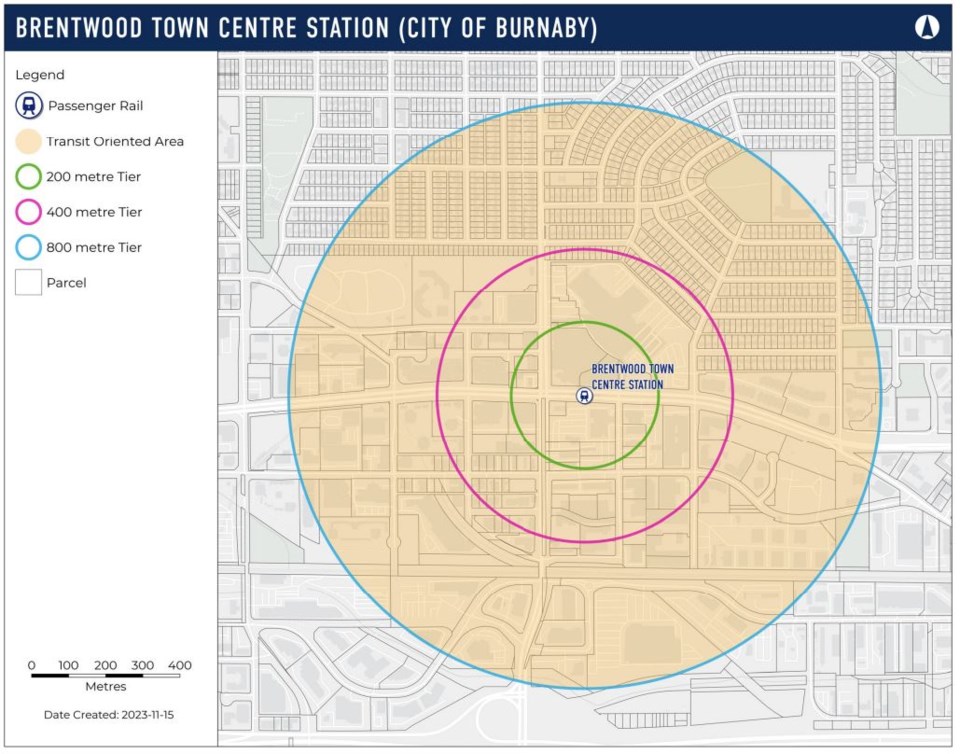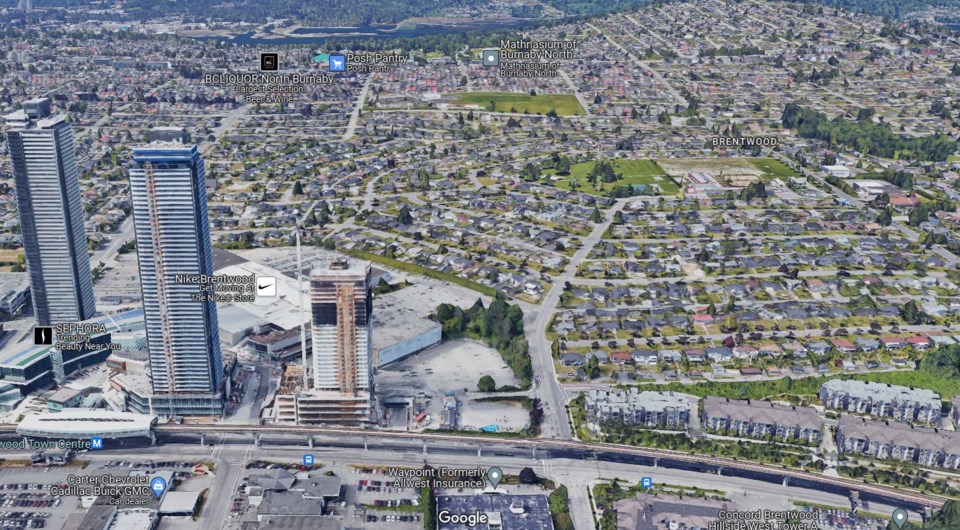The provincial government is unmoved by a from new legislation that could see up to 12-storey apartments built in their neighbourhood.
The “Save Brentwood Park” coalition successfully petitioned city council last week with 298 names to lobby the province to make an exception for their neighbourhood of single-family homes which sits within the 800-metre transit-oriented development area for Brentwood Town Centre SkyTrain station.
The provincial legislation will require cities to allow buildings with minimum heights of eight to 20 storeys within certain distances around “transit-oriented areas” (TOAs) like SkyTrain stations.
The petitioners said the new rules would lead to the “inevitable decimation” of their neighbourhood and an exemption would take into consideration the significant development already occurring in Brentwood.
But the province has responded to the Burnaby NOW with an unequivocal answer: no.
“The province is not considering exemptions to the TOA designations across B.C. that were established last year,” said the Ministry of Transportation and Infrastructure in an emailed statement.
The petitioners argued the designation of the Brentwood Town Centre SkyTrain transit-oriented area was “indiscriminately superimposed over 75 per cent of (their) neighbourhood.”

But the province said the purpose of the legislation is to ensure that “appropriate densities” are built on eligible properties in residential areas near “high quality transit nodes like Brentwood station.”
“New development within TOAs will be a gradual process that’s expected to happen over years,” said the province.
“Land near busy transit hubs like SkyTrain stations is ideal for increasing the supply and mix of housing types, particularly for families seeking to reduce their car dependency, for seniors who need alternatives to driving, and for other British Columbians commuting to their jobs or school.”
The province added developers will not be required to build to the minimum density requirement.
“This legislation is about saying that local governments can’t deny a project based on height and density if it’s in the standards set in TOA legislation. TOA legislation provides an ‘envelope’ for development with an allowable range of densities and heights that can be achieved within a given TOA.”
Council supported petition
Last week, Burnaby council .
Coun. Sav Dhaliwal said the City of Burnaby has done “an excellent job” building in its four town centre quadrants (Brentwood, Metrotown, Lougheed and Edmonds) over the last 15 years.
Burnaby is widely known for its “Grand Bargain” approach to development, which historically sought to concentrate new development in the four town centres and “protect” single-family neighbourhoods from “pressures to accommodate new growth,” according to .
The city had just begun to when the province introduced the new legislation.
But Dhaliwal said there is now a “fatigue in terms of how much one area can take in terms of additional density that’s now going to be imposed by the bills that the province has brought.”
Mayor Hurley agreed, saying Brentwood residents “have done more than enough” when it comes to supporting new development, which is why he doesn’t support what he called the provincial government’s “overstep.”
“And make no mistake, this whole Bill 47, and the other bills that they’ve brought out, is a great overreach by the provincial government into the work that should be done and should be planned by municipalities and the residents working together.”
The mayor has .
The province's new legislation will come into effect on July 1.


